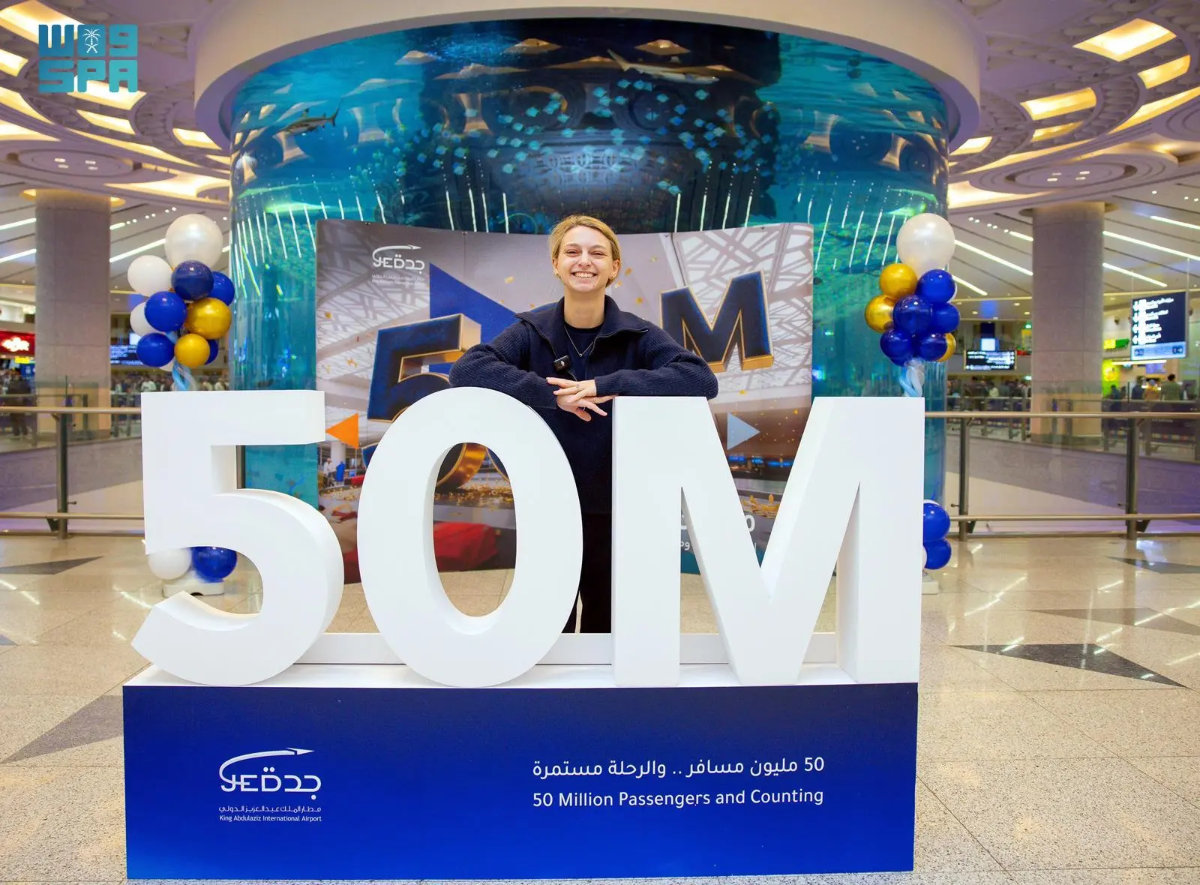JEDDAH: Student innovators have been showcasing their pioneering projects at a Saudi university’s inaugural design week.
More than 20 original products and creative ideas by female students at Jeddah’s Effat University went on display to the public and industry professionals during the event.
Dr. Sajid Khalifa, chair of the university’s design department, told Arab News that the initiative was aimed at promoting community awareness of the role of design in improving quality of life, while also offering a platform for students to present their inventions.
“There has been a trend going on throughout the GCC; we have seen Dubai Design Week and Saudi Design Week just in the past few weeks. Effat University has realized that there is a need for a platform that will gather experts from the industry and the education sector, as well as the public — the potential users of the designs — to communicate and interact,” Khalifa said.
Effat University is one of the Kingdom’s leading design education institutions. “We were the first university to graduate the first-ever batch of Saudi female product designers and introduced them to the industry in 2018,” he added.
The four-day program, staged at the university’s library and cultural museum, was divided into talks and workshops presented and run by professionals and professors, and an exhibition of the students’ projects.
College and university students, members of the public, designers, and entrepreneurs attended the event, with many environmental, interior and product design graduates from the university taking up the open invitation to participate.
Hasnaa Jestiniah, a graduate of product design, took part in the exhibition with her child-friendly juice mixer, called Bounce. “I made this product to strengthen the relationship between parents and their children, and encourage children to drink fresh, healthy juices at the same time.”
The mixer has four separate containers that youngsters can drink from directly or share with other family members. It also functions as a toy that vibrates and makes different sounds.
I made this product to strengthen the relationship between parents and their children, and encourage children to drink fresh, healthy juices at the same time.
Hasnaa Jestiniah, Founder of child-friendly juice mixer, Bounce
Jestiniah also participated with her product at the recent Saudi Design Week in Riyadh, part of the Riyadh Season of activities and events.
Al-Johara Arafa displayed her luxurious mini refrigerator, designed to be a chic addition to the living room. “Some people like to show off; this product is made for them.”
It has a screen which connects to the user’s phone allowing them to choose important appointments or app feeds to appear on the touch screen, and voice commands summon up the weather and time. It also functions as a piece of art.
Arafa said that after being initially apprehensive, she was enjoying her time in the design department. “It is easy, but you need to work hard.”
Another graduate, Galiah Tarabishish, invented specially designed shoes for people with equinus, a foot condition in which the upward bending motion of the ankle joint is limited, causing difficulties with walking.
HIGHLIGHT
• The initiative was aimed at promoting community awareness of the role of design in improving quality of life.
“When I began planning for my graduation project, I tried to think of something that touched me and that I wanted to change, and I decided to find a solution to my brother’s disability,” Tarabishish told Arab News.
Her brother disliked his “boring” footwear, so she invented a new type of medical shoe that was colorful, comfortable, and more practical.
“Medical shoes should not be boring and ugly, especially for young children. They shouldn’t feel different from their peers,” she added.
Product design student, Razan Al-Afif, showcased her robotic Drone Buddy toy. “It helps to wake up kids in the morning, helps them with their homework, and encourages them to be more active physically and mentally,” she said.
The robot can be monitored through an app on a parent’s mobile and is equipped with GPS, two projectors, a screen, sensors, a sound system, and camera.
Dr. Ahmad Kassab, professor of industrial product design, supervised the student projects. “All students are required to convert their designs to a real product for them to graduate, and they have to prove the success of their project,” he said.
The products are registered with the King Abdul Aziz City for Science and Technology (KACST) research institute in Riyadh.

















